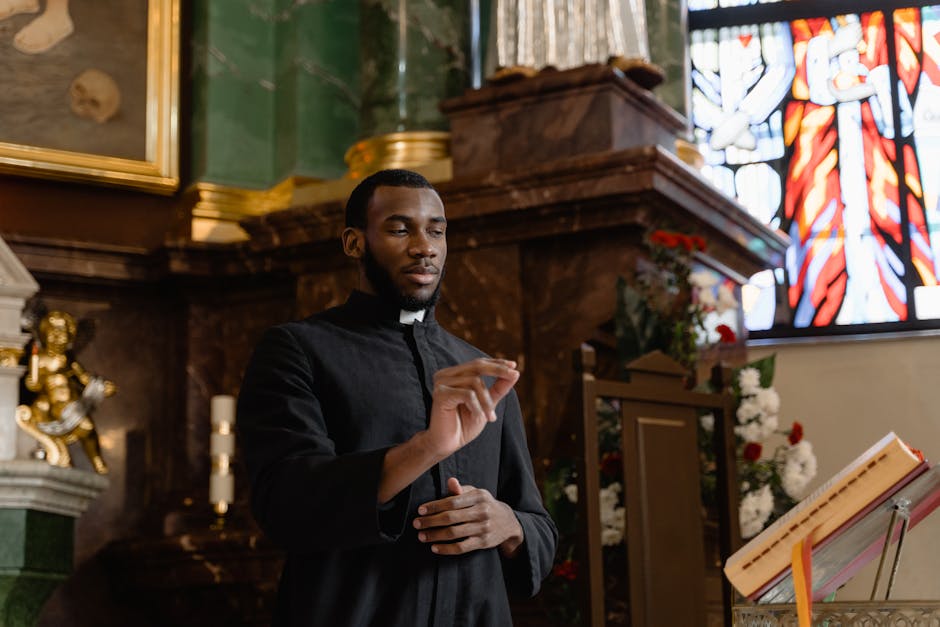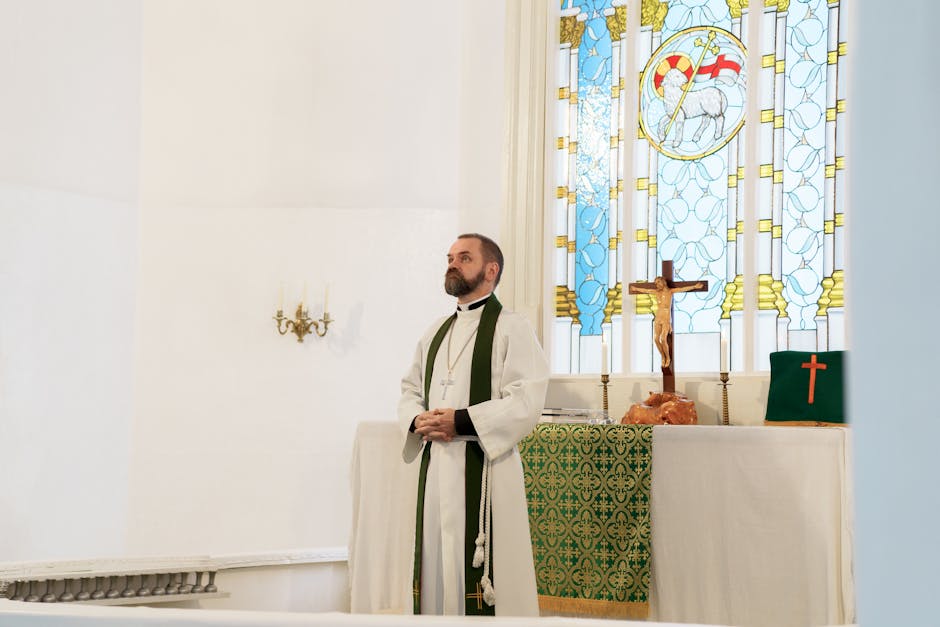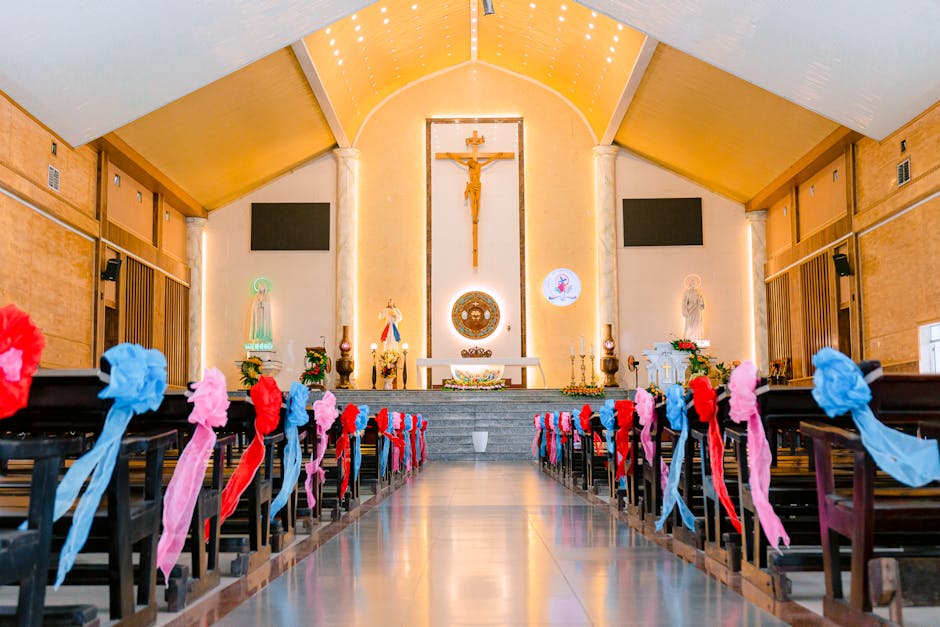The Shepherd’s Craft: Navigating Change with a Catholic Heart
In the life of the Church, moments of transition are not disruptions to our mission but invitations to deepen it. From the appointment of a new bishop to the Church’s steady voice in world affairs, we are called to be a people of faithful collaboration, prudent action, and courageous love.
The Church is a living body, and like any living thing, it grows and adapts under the guidance of the Holy Spirit. Leadership changes, financial challenges, and cultural shifts are not abstract problems for theologians and administrators alone. They are opportunities for every member of the Body of Christ to renew their commitment to the Gospel. In our parishes, our families, and our workplaces, we are invited to become more intentional disciples, building up the Kingdom of God with the unique gifts we have been given.
The Welcoming Heart of a Parish
When a new shepherd is appointed to a diocese, the moment is far more than an administrative transfer. It is a spiritual passage. Recently, in a diocese in the Democratic Republic of Congo, the local cardinal urged the clergy and faithful to create space in their hearts and communities for their new bishop. This appeal highlights a universal truth: a community’s willingness to welcome its shepherd is the fertile ground in which a fruitful ministry can grow. Unity is not uniformity; it is the harmonious collaboration of priests, religious, and laity working together for the salvation of souls.
This welcome is an active, not a passive, virtue. It involves praying for the new leader, engaging with his pastoral vision, and offering our talents in service to the parish’s mission. Every community, whether a sprawling diocese or a small rural parish, thrives when its members rally around their leaders with trust and a spirit of cooperation. This is how we live out the promise of the prophet Jeremiah.
And I will give you shepherds after my own heart, who will feed you with knowledge and understanding. (Jer 3:15)
In this way, the daily rhythms of catechesis, service to the poor, and the celebration of the sacraments become a shared work, a symphony of grace conducted by the shepherd but played by the entire orchestra of the faithful.
Prudence in the Vineyard
The Church does not exist in a vacuum; it is subject to the real-world challenges of finances, administration, and planning. When a diocese, such as one in New York, receives a new bishop known for his expertise in canon law, it is a reminder that faith and reason work together. Such a leader is appointed not merely to manage a crisis but to exercise the virtue of prudence—the art of making sound judgments in complex situations.
Prudent stewardship is essential for the Church’s mission to flourish. Without it, parishes may struggle, social ministries may falter, and our capacity to proclaim the Gospel can be diminished. This call to careful governance extends beyond the chancery. It challenges every Catholic family to manage its resources with wisdom and generosity. It calls on Catholic business owners to operate with integrity and a concern for the common good. And it invites every parishioner serving on a finance council or pastoral committee to offer their skills with a clear-eyed focus on sustaining the Church’s life for generations to come.
For which of you, desiring to build a tower, does not first sit down and count the cost? (Lk 14:28)
A Compass for Communion
In a world marked by division, the Church is called to be a sign and instrument of unity. This mission has two dimensions: healing divisions within the Christian family and speaking truth with charity in the public square.
The Ache of Division, The Hope for Unity
When fractures appear in other Christian bodies, as seen in recent realignments within the worldwide Anglican tradition, Catholics are not meant to be passive observers. Such moments should stir in our hearts a deeper prayer for the fulfillment of Christ’s own desire: “that they may all be one” (Jn 17:21). Our ecumenical task is not one of diplomatic negotiation alone. It begins with humility. It is advanced through shared prayer, collaboration in service to the poor, and a common witness to the dignity of every human life. We must remain steadfast in the truths passed down to us through the apostles, while extending a hand of friendship and dialogue to all who bear the name of Christian.
Speaking Truth with Charity
The Church’s pursuit of communion also compels her to engage with the world. When a Vatican official delivers a strong message in defense of human dignity against an oppressive regime, it is not a political statement but a profoundly pastoral one. The Holy See consistently reminds the world that justice and mercy are inseparable. This public witness is a beacon for all Catholics, calling us to be advocates for the vulnerable in our own communities. Whether the issue is religious freedom, the protection of the unborn, or the care of migrants, our faith demands that we speak. Our speech, however, must always be seasoned with love.
Therefore, putting away falsehood, speak the truth, each one to his neighbor, for we are members one of another. (Eph 4:25)
Applying These Virtues in Daily Life
Navigating our responsibilities as faithful citizens and parishioners requires practice. The virtues of collaboration, prudence, dialogue, and courage are like muscles that grow stronger with use. The table below offers concrete ways to exercise these virtues in different areas of your life.
| Practice | Where to Apply | Why It Serves the Common Good | First Small Step |
|---|---|---|---|
| Collaborative Welcome | Parish life, workplace, neighborhood | Builds trust and unity, allowing new leaders and members to contribute their gifts effectively. | Introduce yourself to a new parishioner or colleague and offer your help. |
| Prudent Stewardship | Family budget, business management, parish council | Ensures resources are used responsibly to sustain the mission and serve others justly. | Review your personal or family spending to align it more closely with Gospel values. |
| Principled Dialogue | Ecumenical gatherings, civic meetings, family conversations | Fosters mutual understanding and seeks common ground without compromising truth. | Read an article or listen to a podcast from a Christian tradition different from your own. |
| Courageous Witness | Social media, conversations with friends, public life | Brings the light of the Gospel to bear on complex social issues, defending the dignity of the person. | Learn about one of the Church’s social teachings and share what you learned with a friend. |
| Merciful Listening | Any conversation where disagreement exists | Affirms the dignity of the other person and opens the door for authentic communication. | In your next disagreement, try to restate the other person’s position to their satisfaction before you respond. |
A Practical Checklist for Faithful Action
Here are a few ways to put these principles into action this week:
- Pray for your bishop and pastor by name, asking the Holy Spirit to guide their leadership.
- Identify one area of your personal or professional life where you can practice better stewardship of your time, talent, or treasure.
- Schedule a conversation with a friend from a different Christian background to discuss what you share in common.
- Choose one current event and research what the Church has taught about the underlying moral principles.
- Volunteer for a parish ministry, especially one that serves the most vulnerable in your community.
The life of faith is a dynamic journey, not a static state. As we accompany our shepherds, respond to the needs of our time with prudence, and witness to the truth with mercy, we participate in Christ’s ongoing mission in the world. By embracing change with prayer and generous service, we allow ourselves to be formed more perfectly into the image of Him who makes all things new.




